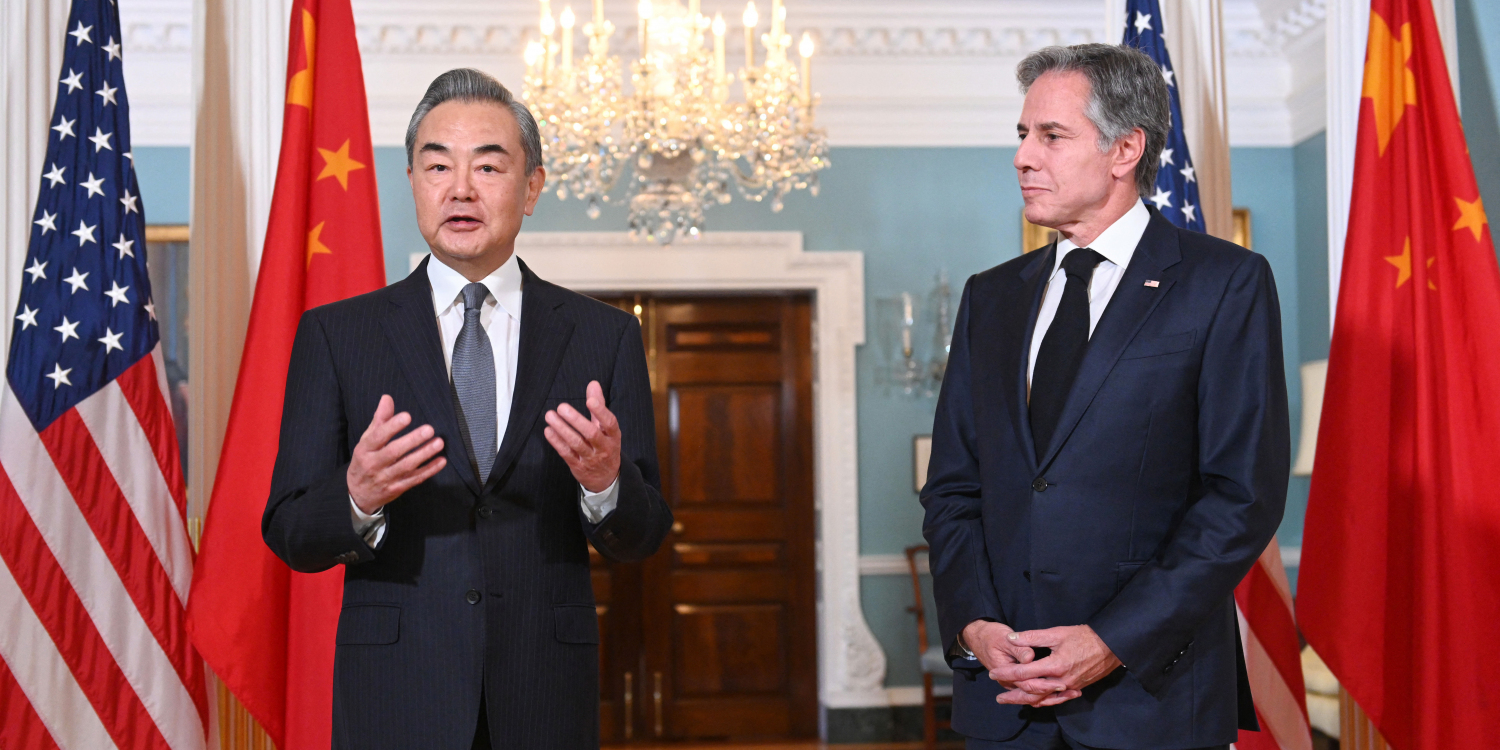Chinese Foreign Minister Wang Yi, making a rare visit to Washington, visits the White House on Friday, continuing an intense diplomatic streak meant to help calm a tumultuous relationship. This series of talks by Wang Yi with American officials could lead to the announcement of an upcoming visit by Chinese President Xi Jinping to the United States, possibly on the sidelines of the Apec (Asia Economic Cooperation) summit. Pacific) in San Francisco in mid-November.
US President Joe Biden has repeatedly expressed his “hope” for a next meeting before the end of the year, while their last face-to-face meeting dates back to the G20 summit in Bali in November 2022.
“Develop cooperation that will benefit both parties”
The United States and China are engaged in fierce competition – but accepted -, wary of each other’s ambitions and competing for influence, in the Asia-Pacific region and beyond. But they assure that they want to manage their relationship to global issues “responsibly” and keep “the lines of communication open”.
In a first round of talks Thursday with US Secretary of State Antony Blinken, Wang Yi called for “stabilizing” the relationship with the United States and for the two major rival powers to confront their differences with “calm ” in order to “avoid misunderstandings”. “We seek to develop cooperation that will benefit both parties in order to stabilize relations between the United States and China and return them to the path of healthy, stable and sustainable development,” he said.
Friday, after new talks with Antony Blinken, the top Chinese diplomat meets national security advisor Jake Sullivan at the White House. The two officials have already met in Malta in September and in Vienna in May. No meeting with the American president has been announced, but diplomats expect him to make an impromptu appearance during this meeting, according to a choreography regulated to the millimeter.
The Taiwan question is the most sensitive
The Democratic president makes no secret of it. He intends to deliver to China, as he reminded the press on Wednesday, an all-out competition “in compliance with international rules” and to defend American interests in Asia. As such, he is asking Congress for a budget of 7.4 billion to stand up to China, militarily and economically. The United States also highlights the strengthening of its alliances in Asia, with India, Japan, South Korea, Australia, the Pacific Islands and even Vietnam.
Beijing sees this as a desire to “encircle” China, which Washington denies. The United States is also raising its voice on Beijing’s activities in the South China Sea, promising for example to activate a defense agreement with the Philippines in the event of a Chinese attack. According to Manila, Chinese ships collided with Philippine boats near an atoll in the South China Sea on Monday.
The meeting on Friday “will be an opportunity to address the areas of concern that we continue to have regarding Beijing’s behavior, particularly in the South China Sea,” a White House spokesperson told reporters. John Kirby. There are many areas of friction between Beijing and Washington. The question of Taiwan, which China claims as part of its territory, is the most sensitive. In a report released Friday, the International Crisis Group calls on Beijing, Washington and Taipei to calm things down, at the risk of a confrontation with “cataclysmic” consequences.
“A Chinese invasion of Taiwan is unlikely in the near future, but the risk of conflict is increasing,” writes its author Amanda Hsiao, for whom “the current trajectory is dangerous.” The parties must “redouble their efforts” to preserve the framework which has made it possible to avoid escalation until now, according to her. “In particular, the United States and China should choreograph a series of reciprocal de-escalation measures.”
